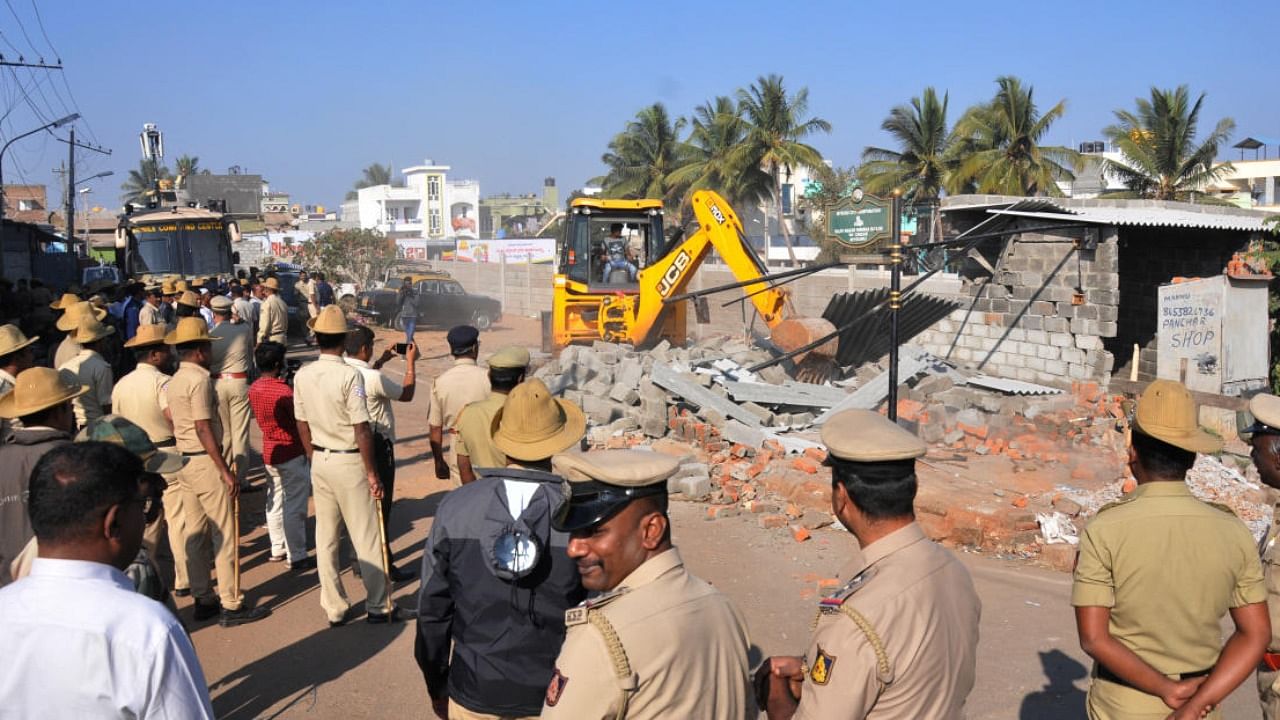
The Karnataka Religious Structures (Protection) Act, passed by the state Assembly in September and notified by the government recently, is a flagrant violation of the Supreme Court’s orders for removal of religious structures built on public land. It also marks a surrender by the government to politics masquerading as protector of religious sentiments. The law was passed after the government came under fire for demolition of a temple in Nanjangud in compliance with the court orders. It grants all religious structures protection from demolition even if they are built on public land like roads and parks. The ostensible aim of the policy is “to protect communal harmony and to not hurt the religious sentiments of the public”. But it is a deliberate misinterpretation, amounting to perversion, of the government’s responsibility, and violates public policy which should be guided by the rule of law.
The Supreme Court has issued several orders since 2009 for removal of illegal religious structures from public land. It directed the High Courts in 2018 to ensure that the order is implemented by state governments and civic authorities. Over 6,000 such constructions were identified in Karnataka and the state chief secretary directed deputy commissioners to take steps to remove them. But the demolition of the temple at Nanjangud created an uproar, with many BJP and Hindutva leaders portraying it as an anti-Hindu act. A campaign was launched and threats were issued, and the government caved in to pressure and enacted the legislation that has now come into force. A purely secular matter relating to civic imperatives and amenities, public welfare and enforcement of court orders was communalised and politicised to the detriment of public interest.
The law is clearly an attempt to undo the Supreme Court order and it is unlikely that the court will look kindly on it. The court has in the past strongly reacted to governments trying to undermine its orders and judgements through legislation. Defiance of the court is not the only issue. By legalising the encroachments into public space, the law flouts important norms of public welfare and safety. Many illegal constructions on the roads are traffic hazards. Some have been built to privatise public property and to prevent the development of roads and other infrastructure. The government has to enforce the rule of law, protect public property and ensure public safety. This law shows that the government is not serious about these duties. By enacting it, Chief Minister Basavaraj Bommai has shown that he and the government consider it more important to pander to the sentiments and attitudes driven by narrow politics than to work for public welfare.